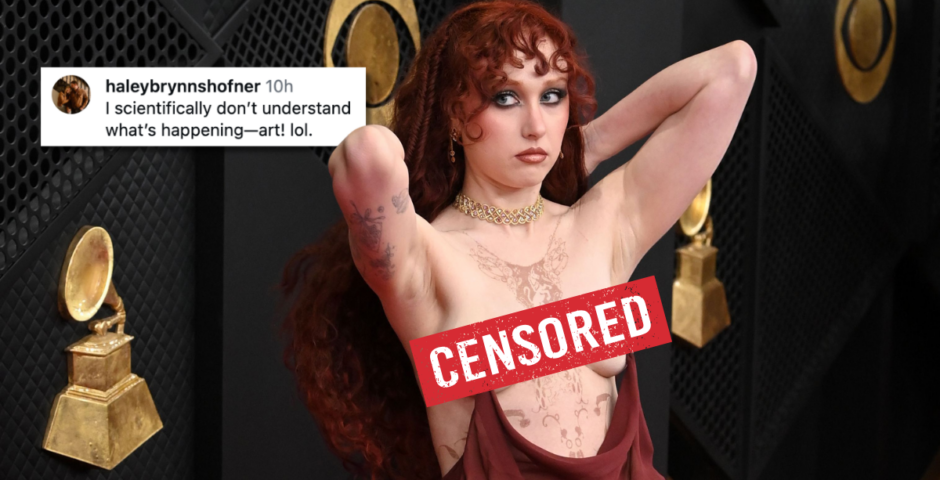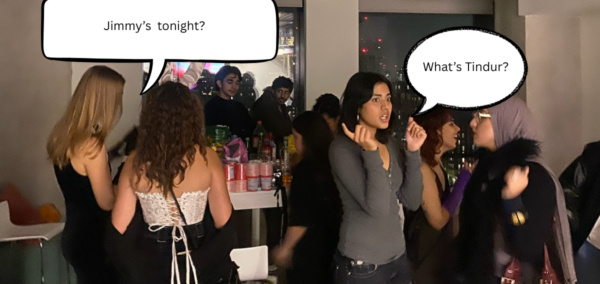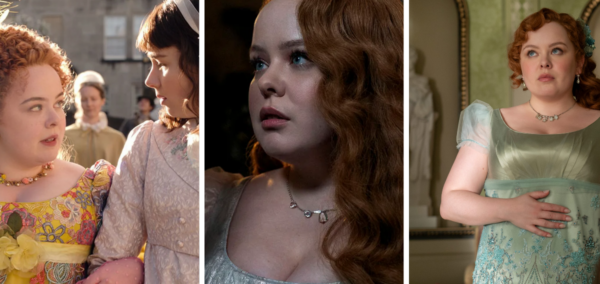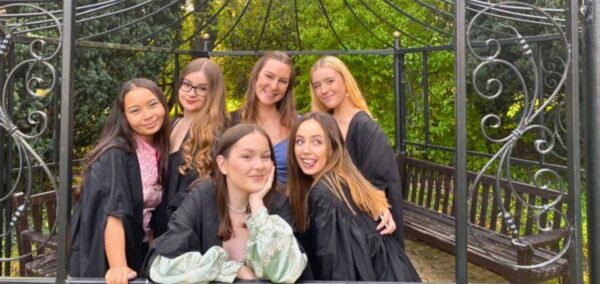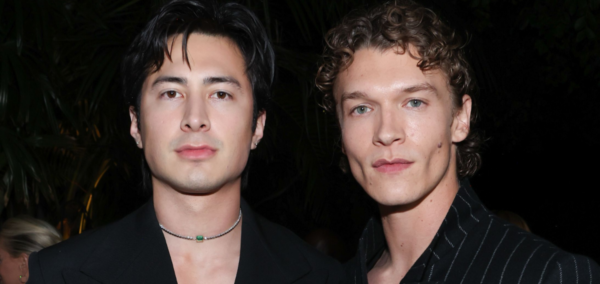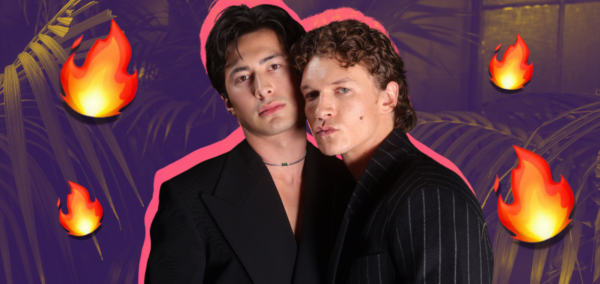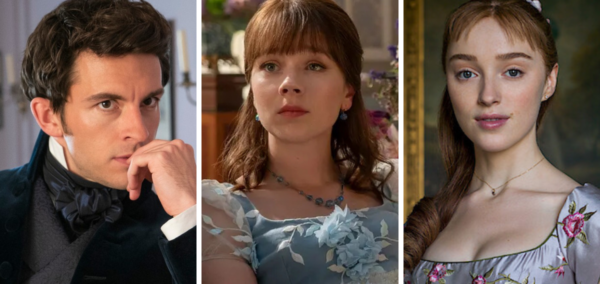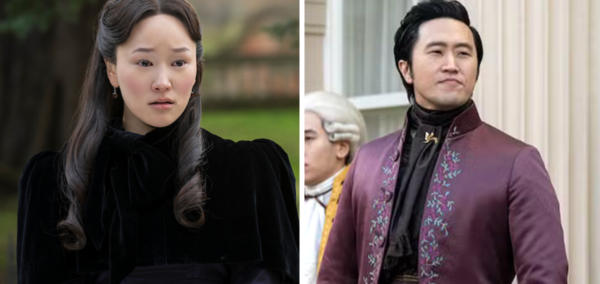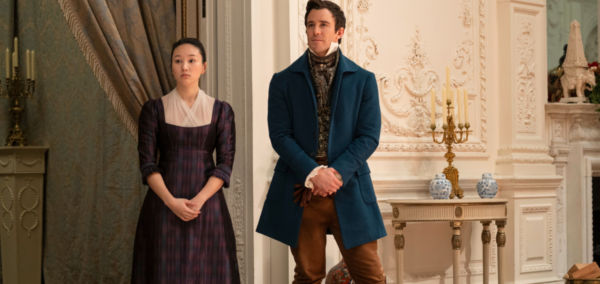
GKT Musical Theatre members reveal all in an exclusive interview about their latest show
GKT start the new semester off with a BANG!
This week, The King’s Tab got exclusive access to the production of ASSASSINS!, interviewing the cast and crew as they rehearsed for show week.
GKT’s production nails the political disillusionment felt across campus following the more than controversial US elections, and if you think the last few weeks have been unhinged, you have yet to see the caricatures of Lee Harvey Oswald and President Ford.
If the title wasn’t already a massive give away, ASSASSINS! is a satirical comedy based on the numerous assassination attempts made on former presidents of the United States. Paired with an orchestra, tech and stage crew made entirely of King’s students, the show makes hilarious yet sharp critiques about the disillusionment and powerlessness felt by every day people.

The cast and crew have been busy rehearsing transitions, musical numbers, lighting changes and sound cues for a two hour show. So, we asked them about how they went about rehearsing, producing and preparing for show week while also staying on top of their work as university students.
Students looking to start their semester off with a bang gathered to watch GKTMT’s ASSASSINS! at Guy’s Campus’ Greenwood Theatre from the 5th to 7th February.
We spoke to Isabella Slyman, the director, to get a peek into what has gone into bringing the show into the Greenwood.
What inspired you to choose ASSASSINS! as the musical for this production, and what do you hope audiences will take away from it?

Most Read
“I decided to take on the role of director last year. I must’ve gone through hundreds of shows and scripts before choosing what I wanted to direct. I was waiting for something that would truly inspire me. I considered other shows, but when I spoke to the future members of ASSASSINS!’ production team, we decided to take on the challenge of Sondheim.
“We felt that Jekyll and Hyde had set the tone for tackling more difficult works. The cast and crew had created such a great piece of art with beautiful singing and scene work, which inspired me to focus on more difficult pieces with surgical scene-work.
“Even after looking at hundreds of other scripts, ASSASSINS! stuck with me the longest. It resonated with everything in my daily life and the headlines I was reading. That’s when I knew this was the kind of experience I wanted to give the audience. Every member of the production team, cast, and crew gave their all. They were all ready for a show like this.”
What has been the most challenging aspect of directing this production with a student cast?

“The show tackles dark and real themes that are very relevant today, such as suicide, cult mentality, Confederate sympathies, and racism. There’s so much happening beneath the surface of what you’re laughing at and watching. Navigating that with a student cast and society has been a step-by-step process. You need to meet people where they’re at.
“We’ve had to adjust certain parts of the show to make it work for us, while also emphasising themes like the evils of capitalism and how it forces people into desperate situations. For example, when directing a song like ‘Another National Anthem’, I want there to be a level of anger that goes beyond just hating a president. It’s about being mistreated by a world that doesn’t let you live or be a functioning member of society unless you have wealth or power—things these characters don’t have.”
This show mixes humour with dark, political themes. How do you balance those elements in your direction, ensuring the audience both laughs and reflects?

“There’s something really palpable about how this show works right now, especially given the current political climate. We’re at a point in history where we can laugh at these things, but also question whether people will sympathise with assassins or those who choose political violence, rather than let their lives be crushed by American democracy.
“What’s interesting about directing this show now is balancing comedy with real dramatic moments. You need to bring the audience into the world, show them what the show is about, and deliver the script in a way that conveys the message without being too heavy-handed. We lean more toward comedy in the production, with the drama in the subtext.
“A lot of the characters feel unheard, which often comes across as comedic. But when we sit with these moments and consider their motivations, we realise that the way society is structured doesn’t serve them—and maybe it still doesn’t today. We’re living in a time where assassinations and political violence are common. Balancing those themes without going too far has been tricky, but the cast really rose to the occasion.”
We also spoke to the choreographer Dema Raye, a second year English student who worked closely with Slyman on the show.
The show has no choreography to reference and purely uses blocking. How do you go about choreographing something without references?
“That was definitely the biggest challenge, but also very exciting. As a choreographer, I had a lot of creative liberty to do something completely new for a show that’s quite classical and renowned. The first thing Isabella told me was that she wanted a big dance number for ‘The Ballad of Guiteau’ to end the first act with a bang.
“We achieved that by incorporating different dance styles—contemporary, a bit of tap, and some cheeky waltz. It was so much fun because it represents the delusions and fantasies of the assassins.”
How do you balance the artistic side of choreography with the practicalities of staging a student production, where time and resources are often limited?
“We were lucky to find four dancers excited to join a production that traditionally hasn’t had large dance numbers. This gave us the chance to take creative liberties. We wanted the dancers to feel comfortable, have fun, and collaborate in creating their characters. We envisioned a cartoonish, film noir, Rockette-esque quality for them.
“For the ensemble, we were mindful of those who were new to dancing or nervous about learning. We focused on making the routines fun and accessible. I think we did a great job, and everyone looks fantastic on stage.”
Do you feel there’s a particular style or energy you want to convey through the choreography that reflects the show’s overall themes?
“Yes, absolutely. A key part of the show is its satirical commentary on gun violence. On the surface, it may seem like the show promotes assassination, but what it’s really doing is highlighting the absurdity of it all. The dancers play a crucial role in narrating the show, acting as if everything is fine and wonderful with their Hollywood glamour.
“For example, in ‘The Ballad of Booth’, they carry off a dead body and continue acting as if everything is okay. That’s a key component we wanted to convey—the way grime and violence are covered up through entertainment.”
Rheanna Arbon, Benjamin Jolley, Madeleine English and Charlotte Flynn who play John Wilkes Booth, Lee Harvey Oswald, The Proprietor and Sara Jane Moore respectively, gave us insight into their characters and key themes.
What made you decide to audition for ASSASSINS!? Was there a particular character or aspect of the show that drew you in?

Madeleine: “I was in Jekyll and Hyde last year and had a great time, and I couldn’t wait to see what GKTMT had in store for 2025. I love the production team—I’ve worked with most of them before, and their vision really drew me in. As an American, the themes of this show are especially relevant to me. I was drawn to the Proprietor, a character usually played by a man, so I thought it’d be a great challenge to turn the role into a woman and explore the differences.”
Charlotte: “I was lucky to get to play Sara Jane Moore. When I read about her, I thought, “She’s insane,” but I was also drawn to her. This show is political, which is rare in musical theatre. Most musicals are meant for relaxation, but this one confronts tough issues. Sara Jane Moore, who tried to assassinate President Ford in 1975, was driven by suburban rage. She had five husbands, was a housewife, and felt ignored as a woman. She wasn’t a feminist, but she just wanted people to pay attention to women—and that’s why she tried to assassinate Ford.”
What’s been the most challenging part of preparing for this role—whether it’s the singing, the acting, or understanding the historical context?
Rheanna: “As Booth, I have a lot of lines and challenging scene work to do, so that’s been difficult. I mean, it’s Stephen Sondheim, who is incapable of writing anything easy to perform. The hardest part for me has been getting into the rhythm of it, getting the lines to register organically in my brain. The goal is to say them honestly without overthinking, and just feel them. That’s probably the most difficult part.”
Benjamin: “As Lee Harvey Oswald, many of our scenes are very tense. Finding the right balance, the highs and lows, so that the character isn’t just one note of anger, sadness, and stress, has been a challenge. Also, learning from the historical context and understanding what he was like as a person helps inform many of his decisions. It’s all in our minds, so we can’t recreate everything exactly, but I’m happy with the character decisions we’ve made. I believe they’re true to form.”
What’s been the most rewarding part of working on this production so far? Any standout moments from rehearsals that you’ll remember?

Charlotte: “I love how acting-heavy the show is. Even with the Proprietor singing, you’re acting through complex emotions, which you don’t often get to do in traditional musicals. One of my favourite moments in rehearsals was the scene where I shoot Guiteau (played by Zain Ahmad) in the ear when he tries to kiss me. We had to rehearse a fight routine where he leans down to kiss me and drops me, but the first six times, I landed on my head—I’m still surprised I didn’t get concussed!”
Madeleine: “ASSASSINS! is rewarding because it’s so different from other musicals. As a concept musical, it has no plot, so it requires a clear vision to succeed, which Isabella definitely has. It’s political and, at the time, maybe a bit too much for Broadway, which says a lot. The idea of assassins at a shooting range or at a funfair —all these contrasting elements—makes it such a visionary show. Sondheim’s work is difficult to sing, but he’s a fantastic composer, and it’s always been a dream of mine to perform one of his pieces.
“A standout moment for me in rehearsals was the first day in costumes. Before that, the show felt abstract, but once we were in period costumes, it immediately immersed us into the world of the show, and the energy was super high. I love when we really get to snap into our characters.”
How do you connect with the themes of political disillusionment and justice in the show? Do you see any parallels between the characters’ struggles and modern issues
Benjamin: “Personally, I see a lot of key issues coming out of the play, including mental health, loneliness, and the need to be seen by the government. As someone who is quite political, I definitely see the anger behind feeling unrepresented by the people your country has put in power. Unfortunately, many of these characters aren’t good people, which makes it jarring when you start to relate to their struggles, only for them to reveal their ugliness. It makes you realise that, even though you don’t relate to them, you still have a level of understanding, which is unfortunate. But I personally enjoy that aspect.”
Rheanna: “I’m from America, so I’m very aware of the current political climate and how it’s affecting people. There’s a huge amount of discord and opposition between different political parties. When I play a character like Booth—who is a ‘raging political mind’ with very violent opinions and takes violent action—it’s a challenge to get into his mindset. Stripping away the fact that he aligned himself with Confederates, at his core, he’s someone who feels his country is changing, and that his vote and voice aren’t heard. Booth, and the people around him, feel left behind. This new country emerging from the chaos is something he doesn’t recognise, and that scares him. He becomes radicalised and does terrible things. It honestly just reminds me of home.”
What is your favourite song from the musical, and how does it reflect your character’s journey?

Benjamin: “I stick with the ensemble until the end, so the finale works best with Oswald. Everything comes together, and he witnesses the consequences of his actions. Generally speaking, ‘The Ballad of Czolgosz’ is always stuck in my head—it’s so folky, upbeat, and silly.”
Rheanna: “I sing a lot in this show, and as you’d expect, ‘The Ballad of Booth’ is my big dramatic solo. It has interpersonal moments and is a pivotal part where we get the audience to sympathise with him. Booth is flamboyant, flashy, and a narcissist—like a peacock commandeering everyone around him. But in that moment, you see him with his guard down, raw and exposed, begging before he dies. I connected with that song, and a lot of work went into learning it to a level I was satisfied with. I feel a lot of triumph when performing it, but my favourite song in the show is ‘Something Just Broke’ because it wraps everything up. It reminds the audience that no matter how much fun they’ve had with the assassins and related to their attitudes and reasoning, it also reminds them of why what they did was wrong and the effect it has on the nation when someone decides to play god.”
If your character had a TikTok or social media account what kind of content would they post?

Rheanna: “Booth would definitely have an actor account where he does Shakespearean monologues and shows off his flashy outfits. He’d comment on politics every now and then, maybe throw in a celebrity mention, but ultimately, it’d be a celebrity account. He’d be promoting the projects he’s involved in. Booth would definitely get canceled, but not because of his political views—more because he’s just problematic in general.”
Benjamin: “Oswald would be the type to post videos of him painting figurines, and every so often, he’d throw in a completely out-of-control political opinion. Slowly, his content would become more political, and eventually, he’d just disappear from the internet. He wouldn’t get canceled, though—he’d get away with saying the most outrageous things simply because he’s a white guy on the internet.”
And that’s a wrap on GKT’s student production of Sondheim’s ASSASSINS!.


